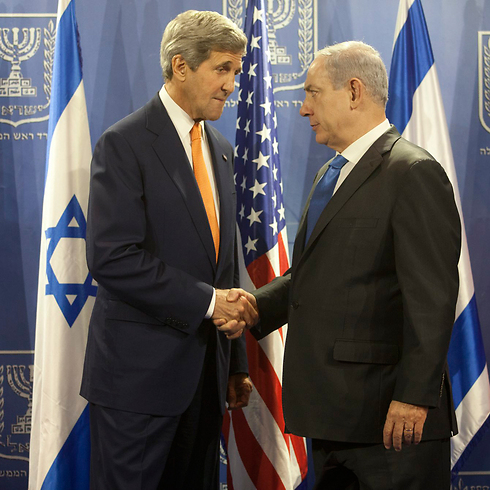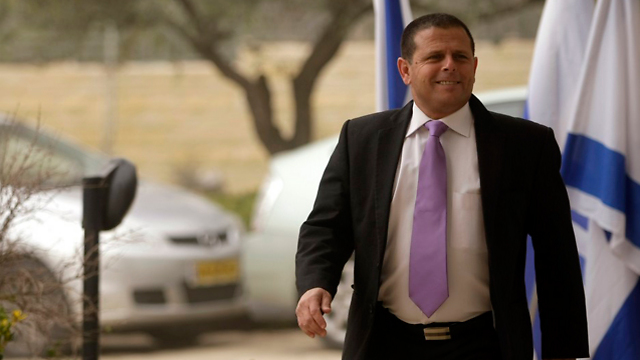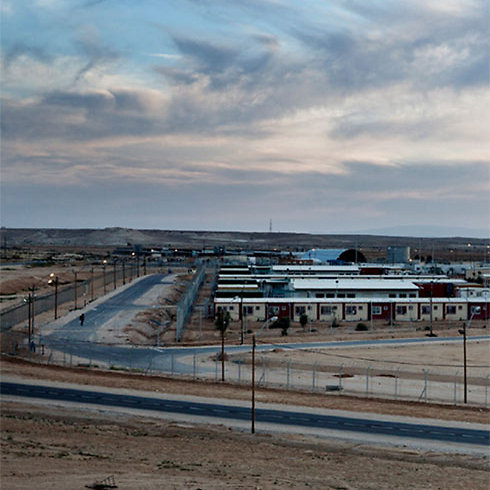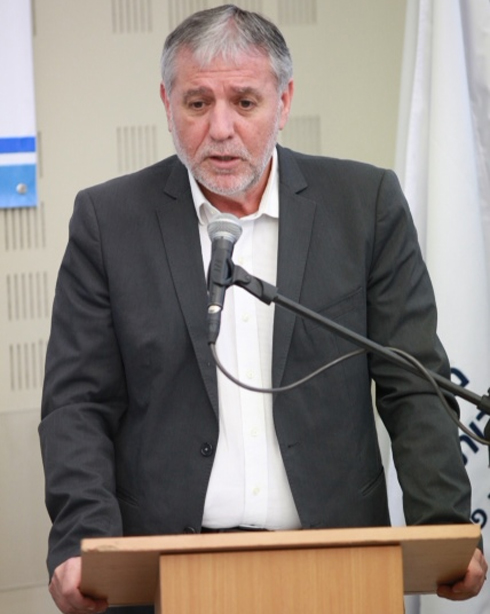
With holidays over, Israel has a long list of burning issues
From Islamic State to the state budget, Israel has a lot to deal with now that the Jewish holiday season has come to end – here's a roundup of the central issues facing Israel this new (Jewish) year.
In Israel the term 'after the holidays' means both the period following the Jewish new year, Yom Kippur and Sukkot, which usually take place during the early fall, and the time when Israel returns to normal after a busy holiday season. This post-hagim period is no exception, and Israel and its leaders face a slew of daunting issues.
Ynet rounded up the fractious topics Israel will deal with now that the holiday relief has ended – from choosing a new IDF chief to external threats, budgetary disputes, and social issues.
New IDF Chief
Defense Minister Moshe Ya'alon is set to take off for a week of work meetings in the US, but when he returns he will avail himself to a string of marathon meetings as he mulls who will lead the IDF after Lt. Gen. Benny Gantz completes his tenure this February. Ya'alon is expected to announce his decision mid-November.
He will hold consultations with former IDF chiefs, and will then hold interviews with current deputy IDF Chief Maj. Gen. Gadi Eizenkot – considered the frontrunner – as well as with GOC Northern Commander Maj. Gen. Yair Golan and former IDF Chief deputy Maj. Gen. Yair Naveh. Barring any surprises, Eizenkot will be the next IDF chief.
Defense Budget
The seemingly endless dispute over the state budget has focused on the the defense budget, which has pitted Finance Minister Yair Lapid against Prime Minister Benjamin Netanyahu and Ya'alon.
Though Lapid and Netanyahu reached an agreement on the eve of Rosh Hashana, according to which the defense establishment will receive a budgetary supplement of NIS 7-8 billion, bringing the 2015 defense budget to NIS 57 billion – the parties are still at each other's throats.
Ya'alon slammed the deal as an "Isra-bluff" and Gantz said the sum does not leave the IDF prepared and armed.
Recent tensions, as well as a number of incidents along the border with Lebanon, indicate, as always, that things could escalate with Hezbollah and that at the last moment, before the Knesset votes on the budget, it will grow. It is important to remember that only a half of the sum is actually intended for defense, with the rest to be spent on auxiliary costs like pensions and bereaved families.
The Locker Committee – the committee charged with formulating the structure of the defense budget – is also expected to hand in its recommendations.
Peace, Netanyahu and the Palestinians
Despite the occasional background noise, Netanyahu has no intention of entangling his political agenda with the Palestinian issue and the faltering peace talks. US Secretary of State John Kerry and the UN's repeated demands to return to negotiations are not expected to put Netanyahu under any real pressure to reach a deal with the Palestinians.
In practice, Netanyahu can renew peace talks together with Lapid and his friends from the centrist Yesh Atid and Tzipi Livni's Hatnua, who view peace talks as a deal-breaker as far as the coalition is concerned. But the probably that this threat from his centrist coalition partners will actualize into territorial concessions or the evacuation of settlement in the West Bank is close to nil.
More importantly, at the end of the month, the Likud is set to convene, and the assessment is that Netanyahu will move to hold early primaries to secure his leadership – convenient at a time when he has no other viable replacement.
After Likud sweetheart and Interior Minister Gideon Sa'ar announced his dramatic exit from political life, Netnayahu moved to hold the primaries in the Likud, now that Sa'ar, his only viable replacement, has dropped out of the game.
Wartime leaks
One of the biggest political hot potatoes facing Israeli politics is currently lying on the desk of the Attorney General: The issue of leaks from Israel's security cabinet during Operation Protective Edge.
The fiery Labor MK Eitan Cabel demanded the issue be investigated after Channel 2 reported that a secret presentation given to ministers during the war detailing the heavy costs of Israel recapturing the entire Gaza Strip was leaked. According to Cabel, the presentation was leaked to prevent the scenario from taking place.
"It cannot be that the country's senior officials will enjoy preferential treatment in the criminal field, owing to their high status, and all the more so when it comes to issues of state security," Cabel said, demanding Weinstein investigate the source of the leak.
So far, the Attorney General has yet to make a decision on the issue. If he doesn't come to a decision soon, the issue might reach the High Court of Justice's table.
Iran, Islamic State and Hamas
The relative inactivity on the diplomatic front and the lack of any real domestic rivalry leaves Netanyahu with more time to deal with his favorite topics: Security, cyber security, Islamic State and, of course, Iran.
The 2015 state budget has yet to be approved by the Knesset, but it is believed that amid the increasing threats to Israel's security in the Middle East, the defense establishment will demand additional funds in only a few months.
Netanyahu, who doesn't pass up a chance to stress his position on the threat from Tehran, will have to once again maneuver to supply the defense system's needs.
Will Netanyahu be faced with major decisions on the Iranian nuclear threat in the near future? That's a complex question. The negotiations between Tehran and the world powers are still ongoing and while they continue the United States will rein Israel in and stop any attempted operation.
Nonetheless, the prime minister still believes the talks will not lead to reducing Iran's nuclear capabilities. In the next few months, when it becomes clear where US-Iran relations are heading, the options Israel has – or doesn't have – will become clearer as well.
This leaves Israel to keenly keep an eye on the terror organizations surrounding it. While the entire Western world is busy dealing with the threat posed by the Islamic State – which for the time being is still far from Israel's northern borders – Israel's involvement in the fight against the terror organization remains covert.
But Hamas is an entirely different story. Netanyahu will have to make a decision in the foreseeable future. The most sensitive issue at this point is the future negotiations over the retrieval of the bodies of IDF soldiers Oron Shaul and Hadar Goldin.
Even though during the Gaza conflict, cabinet ministers repeatedly said Israel was not willing to release Palestinian prisoners for bodies, Hamas is indicating this is the direction it intends to pursue.
Israeli organizations opposed to the release of terrorists have already launched their protest campaigns and as Israel marks three years to the Shalit deal, public opinion can be easily swayed against a follow-up deal.
Eventually, however, it would be the prime minister and his cabinet who make that decision.
Our greatest ally?
Another pressing issue Netanyahu will have to deal with centers on Israel's ties with the US and the dramatic deterioration in Jerusalem's relations with Western European countries.
Israel is currently in a difficult spot – both diplomatically and in its perception by other countries – and the Foreign Ministry recently admitted that they were facing an uphill battle explaining Israel's conduct in the administered territories.
The European public opinion is growing increasingly fervent in its anti-Israel bias, which might not worry Netanyahu on a personal level, but the possibility this would hurt Israel's economy certainly weighs on his mind.
European countries are still not calling for an official boycott of Israel, but the demands to hurt Israel financially are getting louder every day. Netanyahu will have to take a stand on this issue, as Israel is alienating potential allies every time new construction is announced in lands deemed illegal by certain European powers.
Budget, zero VAT, wave of legislation
The Knesset's winter session is expected to be particularly tense and contentious due to serious policy disputes between coalition members. The centerpiece will be the issue of the 2015 budget, which will be submitted for approval in November and eventually decided on after a series of marathon meetings. The debates will include the familiar quarrels between the ministers and the anticipated objection from the opposition.
The Knesset will also be forced to decide on Lapid's controversial zero percent value-added tax bill, which has elicited mixed responses from government members. The final approval of the proposal was to be granted during the previous Knesset session, but was delayed until the winter session following heated debate.
Lapid and his ministerial colleagues claim that the bill is part of a comprehensive program designed to reduce housing prices, but those who oppose the proposal claim that it will negatively affect the real estate market.
Also on the agenda is a long list of bills regarding the relationship between religion and state in the world's sole Jewish state.The issue of civil marriage, the granting of equal rights to the LGBT community, the surrogacy law – which will facilitate the process of having a child for same-sex couples – and the conversion bill, which is designed to reform the conversion process and make it more accessible.
Fate of psychometric exam
Immediately after the holidays, the new draft of the Psychometric Entrance Test (PET) will be published. Last January, Education Minister Shai Piron announced that a student whose matriculation certificate, known in Israel as the bagrut, reflects his academic accomplishments in high school could apply to university without taking the exam.
As of now, it is unclear precisely when the move will go ahead, or what grade average students will need to exempt them from the exam. Answers to these questions will be given within the next several weeks.
Crammed classrooms
Piron will be also forced to deal with the matter of overcrowded classrooms. The 'sardine protest' was initiated by worried parents from Holon who objected to having their children squeezed into undersized rooms, and were joined by many sets of parents from across the country.
.jpgW.jpg)
Meanwhile, local solutions were advanced for several particularly-crammed classrooms, but the education minister has since promised to establish a "national program" on the issue that will be presented by December.
Migration policy
After the High Court overturned a law allowing the extended detention of infiltrators without trial, the immigration issue has once again been thrown back into the hands of legislators, asnew policies are needed for dealing with the 47,000 unlawful immigrants living in Israel.
A majority ruling – by seven justices – nullified the law which regulated the establishment and operation of the Holot detention facility, scheduled to be shut down within 90 days of the ruling. According to the panel, an amendment that allows the detention of infiltrators for up to three years without trial, is unconstitutional.
Prime Minister Benjamin Netanyahu ordered ministers to draft new legislation to tackle African migration after the High Court overturned the law, but a permanent proposal to address the difficult human rights quandary remains far away.
Battle against poverty
The Elalouf Committee to Reduce Poverty in Israel, established by Welfare and Social Services Minister Meir Cohen, issued last June a series of recommendations at a total cost of NIS 7.8 billion per year for the next five years. However, Minister Cohen and Elalouf recently announced that the government approved a budget increase of only NIS 1.7 billion for the implementation of the committee's recommendations.
While the welfare minister termed the move "a great achievement", social activists and senior officials in social services said that the move signified a quiet burial of the committee's recommendations.
"The move doesn't end here, but rather is only the beginning of a long-term process, and we don't have any false hopes. We will seek additional budgets," Elalouf vowed.
Whether one sides with Cohen who called the move an achievement or with his critics, it is clear that the government's seriousness will be determined in its ability to secure additional funding towards the implementation of the recommendations.
Yoav Zitun, Omri Ephraim, Atila Somfalvi, Aviel Magnezi, Shahar Hay and Avital Lahav contributed to this report.



















